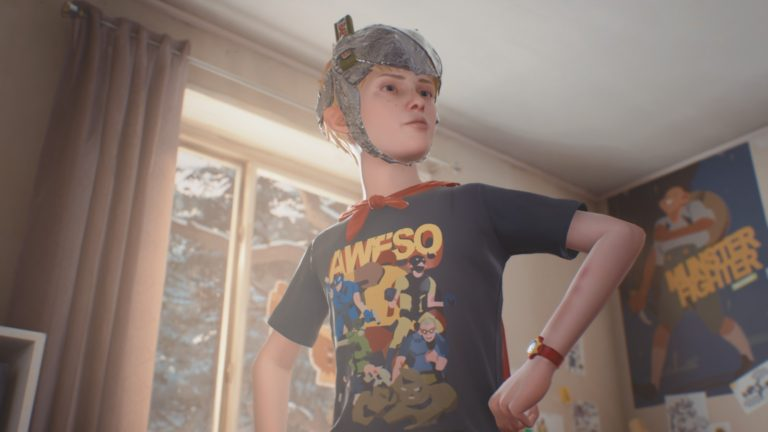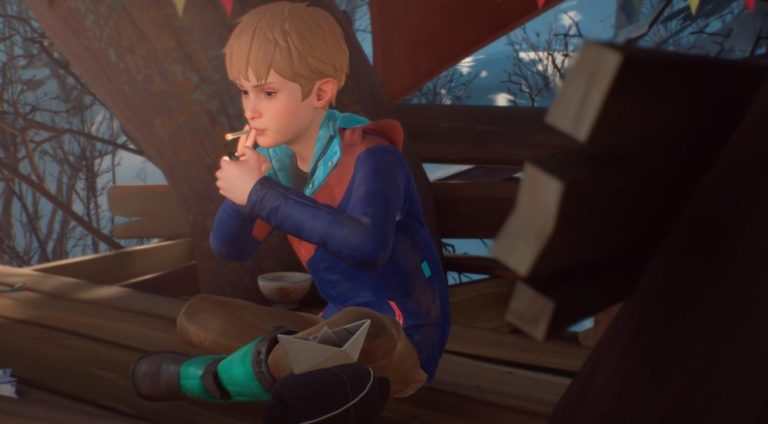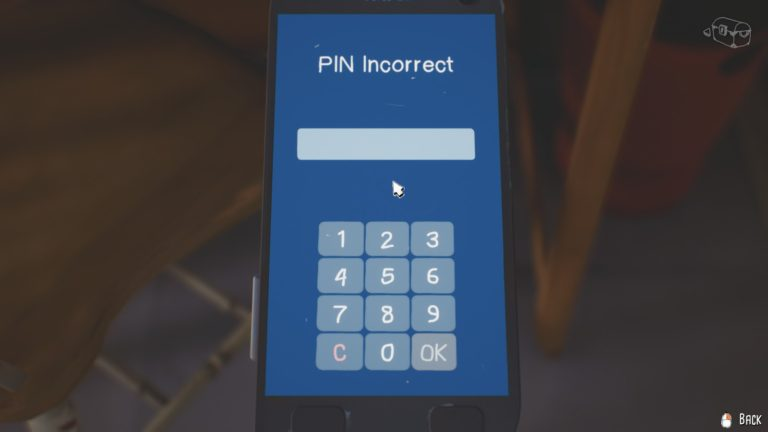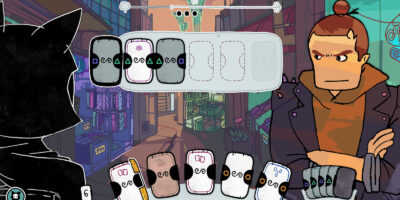This article previously appeared on Crossfader
For better and worse, Crossfader never saw fit to establish a distinct and defined mission statement, favoring instead the strategy of throwing opinions on the wall and seeing what sticks. As such, loving LIFE IS STRANGE is just about the only thing more than two people on the team can agree on. We’ve spent a lot of words on Dontnod Entertainment’s runaway indie hit over the years, and I’ll elect to refrain from rehashing what’s been said better and more extensively in the links above. But needless to say, with the official sequel to 2015’s original installment a mere two months away, excitement’s been high over Video Game Way, and we’ve been looking forward to whetting our appetites with THE AWESOME ADVENTURES OF CAPTAIN SPIRIT, a free-to-play prequel. On a qualitative level, it ultimately boils down to that beloved old adage: “People who like this sort of thing will find this the sort of thing they like.” But on a larger level, it’s yet another mark in favor of the interactive short as one of gaming’s underrated achievements.
THE AWESOME ADVENTURES OF CAPTAIN SPIRIT focuses on Chris, a nine-year-old boy living with his father, Charles, somewhere in the snowy barrens of Eugene-adjacent Oregon. Having lost his wife in a car crash a few years previously, Charles is deep into the sauce, electing to lounge on the couch watching basketball and polishing off handles of whiskey instead of spending time with his son. As such, Chris is mostly left to his imagination, spending his time sketching out the adventures of the titular superhero and his dastardly rogues’ gallery. Waking up on a Saturday with nothing to do, Chris dons the cape of Captain Spirit and goes off to perform a series of heroic tasks, from practicing his snowball warfare to defeating the evil “Water Eater” that lurks in the laundry room. Along the way you’ll fill in the blanks as to his mother’s tragic death, beginning to believe that maybe, just maybe, the powers of Captain Spirit aren’t entirely in Chris’ imagination . . .

Dressing himself clearly isn’t one of them
Though the game is colloquially understood to be a bridge between the first and second seasons, there’s been no official confirmation that we’ll be playing as Chris in the sequel. As such, CAPTAIN SPIRIT is all the more interesting when considered as a stand-alone interactive short, an intriguing avenue that this series (and others) should certainly consider doubling-down on in the future. The concept of the stand-alone tale within a franchise has most recently been in the cultural consciousness due to the middling-at-best Star Wars Stories ROGUE ONE and SOLO, but in that case, you should hate the player and not the game. On paper, stand-alone stories provide a valuable way to explore further intricacies of any world of story, making the lore richer, the reach wider, and the appeal more universal, shining a light on diverse characters and scenarios that are (hopefully) quite different from the ones facing the main cast that initially drew us in.
As for how CAPTAIN SPIRIT stacks up, it easily meets the above criteria. Both LIFE IS STRANGE and BEFORE THE STORM have featured elements of the supernatural, giving Max from the first installment the core game mechanic of being able to rewind time, and falling just short of confirming that Rachel can telekinetically start fires in its spin-off. For such an idiosyncratic series, fans had reason to wonder just what they’d get with a sequel, and CAPTAIN SPIRIT seemingly solidifies that the series will always involve a young person in a turbulent emotional time discovering a secret power that’s a stand-in for a burgeoning sense of confidence and identity. Locking down a thematic throughline is nothing to sneeze at, and with that context, we can more fully invest ourselves in the contained story of Chris’ day off.

Roastin’ baby’s first bone
Also found during Chris’s explorations are various news clippings and notes tying us back to Arcadia Bay, keeping things familiar and contextualized while still widening our view. Despite this, things never seem recycled, with a completely new and charming look through the lens of imagination confidently worn by pre-teen boys, Chris’ naievty and wide-eyed optimism selling the superficially mundane tasks you have the chance to complete. And yes, while my above use of “diverse” is a bit of an ambitious qualifier considering Chris is as white as the snow that falls outside, CAPTAIN SPIRIT at least proves the series can tell emotionally evocative tales coming from someone other than a quippy teenage girl, and hopefully future installments will continue to add variety as to whose stories we focus on.
Apart from its success and efficacy as a stand-alone story, the game is simultaneously an impressive entry in the interactive short canon. Coming in at a lean two-and-a-half hours, CAPTAIN SPIRIT doesn’t overreach in terms of scope or ambition, allowing us to take a leisurely stroll through the emotional nooks and crannies of Chris’ life with his father, absorbing the full depth and breadth of the situation. While a movie would no doubt rush us off on some redemption arc for Charles or some cataclysmic event that caused Chris to have to step in to act as “superhero,” the game instead portrays a more sobering and grounded look at the relationship between a heavy alcoholic and his son.

Although his drinking makes sense considering how frustrating his PIN is
Delivered with a light but respectful touch, the nature of the video game medium in general ends up bolstering the insights we get into the Erikson household, as following one dialogue path ends in lighthearted father-son banter, only for the next conversation to end in increasingly ominous anger if the right buttons aren’t pressed. This holistically showcases the mercurial nature of alcoholism, making the closing scene where Chris is put into a position to fib for Charles all the more tense and cumulatively worthwhile, not even mentioning the obvious parallels with Chris’ flights of self-assured fancy as Captain Spirit and the timid persona he adopts around his father. Allowing us to get a comprehensive grasp on one relationship in one location in a medium that only gaming can provide makes CAPTAIN SPIRIT a more notable achievement than its length and free-to-play nature might suggest.
Confident, assured, and evocative, CAPTAIN SPIRIT is a refreshing insistence on the efficacy of the stand-alone interactive short. You’re woefully behind the times if you still consider gaming to be a medium absent of storytelling potential, but admittedly, the narratives of AAA releases and franchises can get lost in game mechanics, difficulty, and a larger preference placed on graphics. Short, holistic experiences like Dontnod’s recent amuse bouche, however, fully envelop you within their story, allowing you to more greatly identify with the characters as you go about inhabiting their worlds for an hour or two. More personal than a film and more stimulating than a novel, it’s an exciting new horizon for creatives to consider, and it’s encouraging to see CAPTAIN SPIRIT at the helm.
















Comments